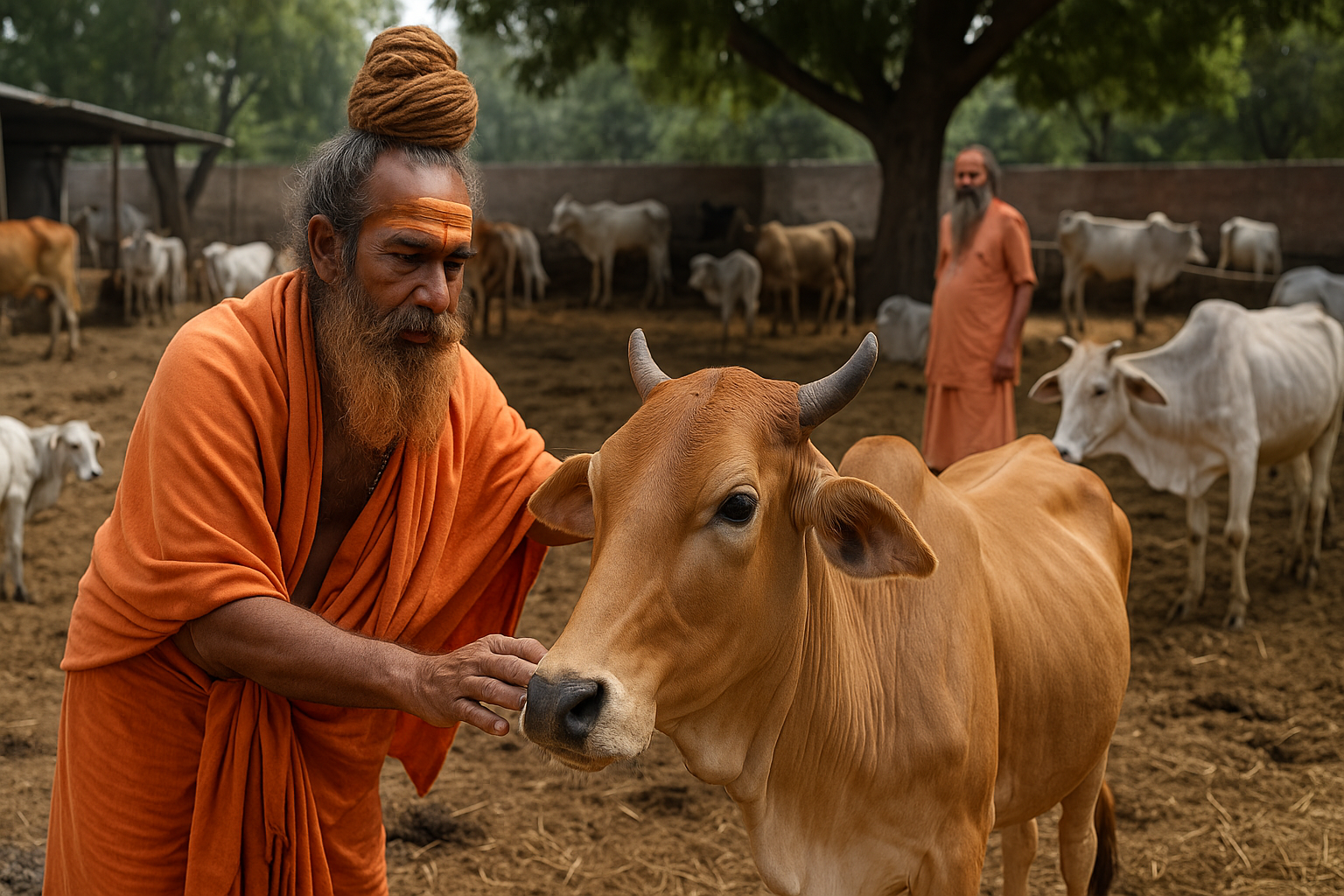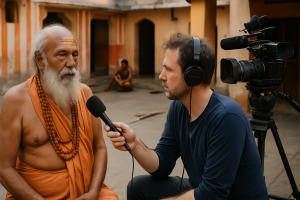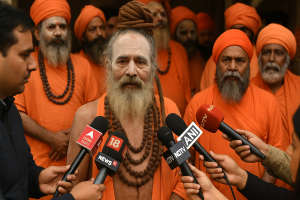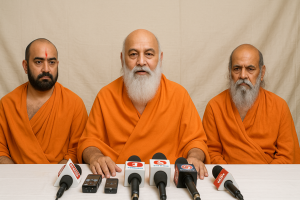Sacred Service: Gau Seva as a Pillar of Dharma at Digambar Akhara
Among the many noble traditions upheld by Digambar Akhara, one of the most cherished is Gau Seva, or the service and protection of cows. Deeply rooted in the Vedic and Sanatan Dharma traditions, Gau Seva is not merely animal care—it is a sacred responsibility and spiritual practice, symbolizing compassion, sustainability, and reverence for life.
For centuries, the saints and sadhus of Digambar Akhara have treated cows not as animals, but as divine beings—Gau Mata, the mother of nourishment and virtue.
Vedic Roots of Cow Reverence
In Vedic scriptures, the cow is hailed as Kamadhenu, the wish-fulfilling celestial being, and is associated with divine attributes of patience, abundance, and selfless service. Lord Krishna himself was a gopa (cowherd), and ancient rishis saw cow protection as essential to preserving dharma.
At Digambar Akhara, this ancient reverence is translated into practical action through well-established systems of cow care and protection.
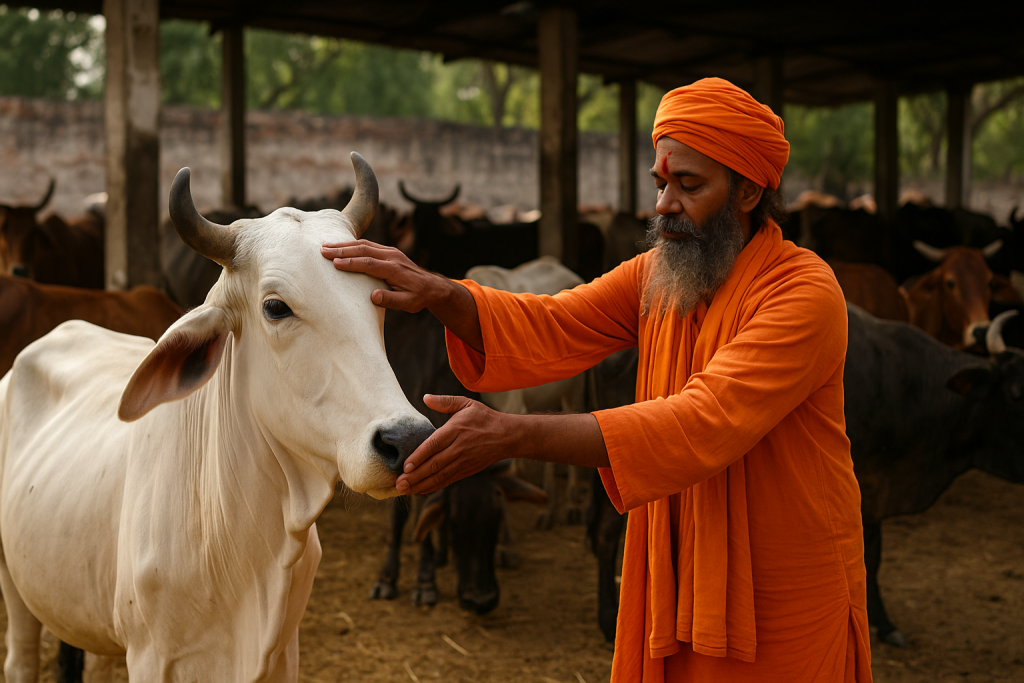
The Akhara Gaushalas: Homes of Care and Compassion
Digambar Akhara operates and supports multiple Gaushalas (cow sanctuaries) across India. These are not commercial dairy farms but spiritual shelters, where cows are fed, cared for, and protected for their entire lives. Key aspects include:
- Nutritious feeding using organic fodder and Ayurvedic supplements.
- Round-the-clock veterinary care, including treatment for injured or elderly cows.
- Spacious enclosures that allow cows to roam freely and live naturally.
- Protection of indigenous cow breeds, preserving India’s native biodiversity.
- Eco-friendly initiatives using cow dung and urine for organic farming, biogas, and traditional medicine.
These Gaushalas are run by trained caretakers under the blessings and supervision of Akhara saints, and many devotees contribute through voluntary service or donations.
Gau Seva as Sadhana
For Digambar Akhara, Gau Seva is not merely a social activity—it is a form of sadhana (spiritual practice). The saints often engage in cow feeding, cleaning, and chanting mantras in the presence of cows, considering it a path to purify one’s karma and cultivate humility.
Devotees visiting the Akhara are encouraged to participate in Gau Seva, particularly during auspicious days like Gopashtami, Makar Sankranti, and Krishna Janmashtami, when special rituals are performed for the wellbeing of cows.
Community Engagement and Education
To spread awareness, the Akhara organizes:
- Workshops on cow care and organic farming.
- School visits and awareness programs for children and youth.
- Cultural events highlighting the role of cows in Hindu history and daily life.
Through these efforts, the Akhara promotes a dharmic lifestyle rooted in compassion, sustainability, and respect for all living beings.
Conclusion
Gau Seva at Digambar Akhara is a shining example of how spiritual values and social action can work hand in hand. In serving the sacred cow, the Akhara nurtures not only a divine being but also the very soul of Sanatan Dharma.

